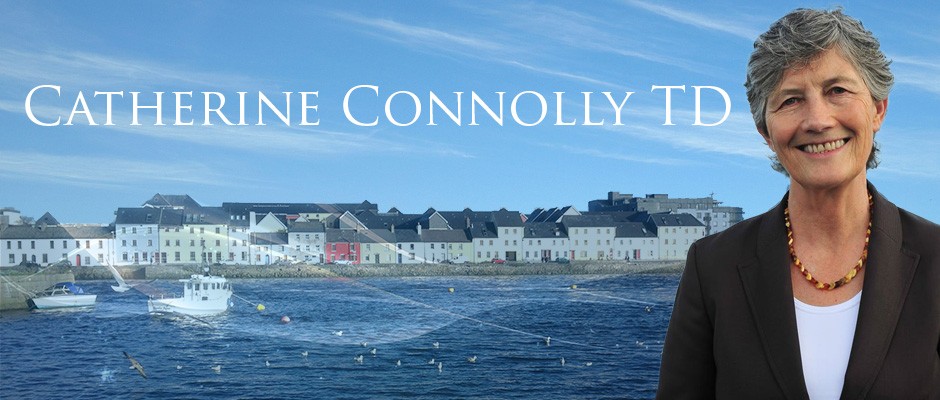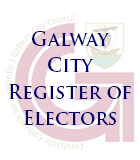This debate began at 2.30pm and lasted until 6.30pm. I stayed in the Dáil Chamber for the whole period of time and although I had my name down on the list to speak on this topic, unfortunately the debate concluded before my name was reached.
Notwithstanding same it was extremely instructive to listen to the various contributions.
The opening speech from the acting Minister for Health was breath-taking in its arrogance, its self-congratulatory tone and in the lack of knowledge portrayed.
Moreover while confirming that ‘discussions are underway within the Department of Health concerning the parameters of a review of the Vision for Change Strategy’, the Minister utterly failed to give a time frame for same and equally as importantly utterly failed to place this review in any meaningful context.
The ‘Vision for Change’ document was published in 2006 and that was further to a document called ‘Planning for the Future’ which was published in 1984, the central recommendation of which proposed a new model of mental health care.
Given the slow pace of progress however over a 22 year period from 1984 onwards, it was necessary to relook at the services again leading to ‘Vision for Change’ which was published in 2006 and became government policy.
This document detailed a comprehensive model of mental health service provision for Ireland for the ensuing ten years including providing a framework for building and fostering positive mental health across the entire community and providing accessible, community –based, specialist services for people with mental illness.
To ensure that the policies set out would be implemented, an Independent Monitoring Group was set up for two three-year periods i.e. 2006-2009 and 2009 to 2012.
Significantly both the Monitoring Group (which for some reason was disbanded in 2012) and separately the Mental Health Commission have repeatedly pointed out that ‘…implementation of Vision for Change has been slow and inconsistent’.
The Minister however seemed to be unaware of these bodies and/or certainly failed to refer to them in his speech and certainly failed to address their criticisms. Moreover he failed to address the manner in which the HSE in various parts of the country appear have cherry-picked sections of the document to justify the closure of various mental health services which were imbedded in the community and prior to ensuring any proper other arrangements were in place.
By way of example and forgive me for being parochial, the ongoing critical situation in which the Psychiatric Department in Galway Regional Hospital finds itself arises to a large extent because of the failure to open a state of the art unit with 20 plus beds in Ballinasloe a number of years ago. The decision not to open this unit was strenuously opposed by the community of Ballinsloe with the support of Galwegians and also by the medical personnel; but to no avail as the HSE West maintained their decision was in line with ‘Vision for Change’. The result – an increase in bed numbers up to 45 beds in the existing psychiatric unit in Galway Hospital which was at straining point before the increase and now simply cannot cope.
Moreover the community of Ballinasloe and East Galway have been left bereft in relation to mental health services.
Moreover both the Minister and a significant number of speakers in the debate used their time to describe what was needed as they saw it but again seemed unaware that the ‘Vision for Change’ document which has 282 pages is a most comprehensive document and sets out precisely what was and still is required. Indeed amongst many recommendations it includes the need for:
- Psychological and Social Therapies
- Primary Care and Community Mental Health Teams in modern buildings
- Adult Education
- Mental Health Promotion Programmes
- Adequate and affordable housing given the interconnection between Housing and Mental Health
- Formal recognition and support through practical means of the crucial role of family care and carers in mental health service provision.
Significantly also it provides a detailed section on Suicide Prevention noting the ‘consistently high rates of death by suicide over the past 20 years, particularly among young men, is an issue of major public concern’
Remember this document was published in 2006!
Unfortunately and tragically the figure for suicide has continued to rise and the figures to hand indicate that more than 500 people took their own lives in 2015.
Yet most speakers in the debate failed to hold the Minister to account and or failed to ask why the implementation of ‘Vision for Change’ has been both slow and inconsistent and most importantly what steps can now be taken to implement the recommendations.
This failure to hold the Minister and government to account is all the more astounding given that the same document on page 176 ( extrapolating from Northern Ireland figures on a pro rata population basis) suggests that the total annual cost of mental health is €11 billion, the majority of which is related to lost output and human costs.
So on every level including an economic one it makes sense to provide a comprehensive mental health service and yet we are not only failing to do so but even more worryingly failing to hold the government to account for not doing so.
Finally it beggars belief that the Director of Mental Health on a recent RTÉ programme with Claire Byrne along with the Minister of Health in the Dáil justified the taking of €12 million from the Mental Health Budget on the basis that it could not be spent this year!
I can think of any amount of organizations on the ground including Console which would efficiently use this money to save lives.
Indeed that is something we should now ask the Minister for Health to sanction, i.e the sharing out of this money (that cannot be spent!) with those organizations that are struggling to survive financially but at the same time are carrying out invaluable work with people suffering from mental illness and indeed saving lives.



